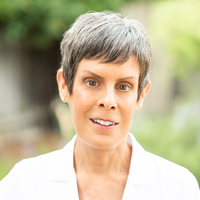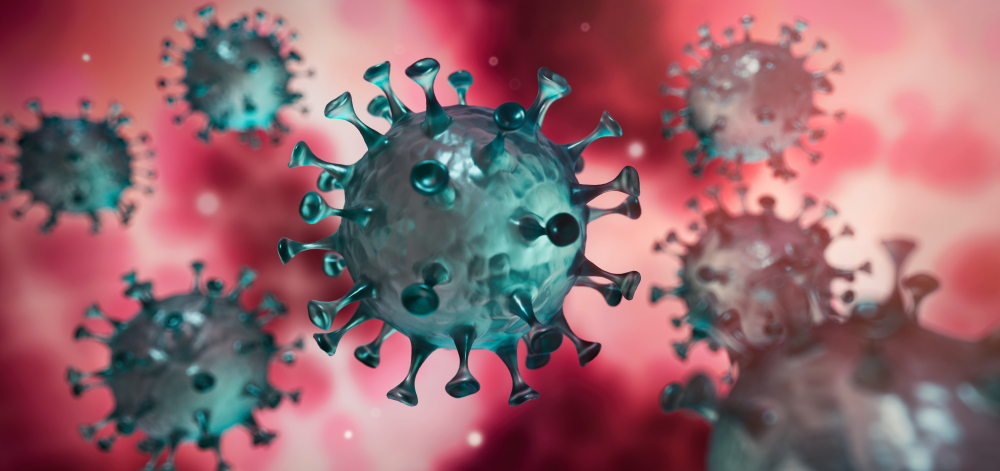PUBLISHED: 8th April 2020

by Dr. Deanna J. Attai
FORCE Note: This post was originally published by Dr. Attai on her blog. It is posted here with her permission.

Many of us are struggling to adjust to the changes we have had to make due to the COVID-19 pandemic. For those newly diagnosed with or undergoing treatment for cancer, there is an added level of anxiety and uncertainty, especially as national medical societies have made recommendations to curtail office visits, screening mammograms, breast cancer surgery and other treatments.
It is important to understand that these guidelines and recommendations are being made in the best interest of both individual and general public health. It has become clear that people who are seemingly healthy (no cough, fever, or other symptoms of illness) may in fact carry the SARS-CoV-2 virus and may infect others. “Social distancing” and “stay at home” recommendations can help reduce the number of people infected or can at least help to “flatten the curve” – spread the number of infected out over a longer period of time, to lessen the impact on the healthcare system.

Many breast surgeons and oncologists have transitioned to telephone and video encounters – but we are still available to see patients who need an examination or treatment. The American Society of Breast Surgeons and the American College of Radiology have issued a joint statement recommending that screening mammograms be put on hold for now. Screening studies are those performed in asymptomatic individuals – those without any lump or other concerning problem. Most facilities are still performing diagnostic (workup of a problem) and biopsies. As noted in the statement, “there is no evidence that delaying screening mammography for the proposed short time period will affect mortality but there is plenty of evidence that being exposed to the coronavirus can impact mortality.”
While streets and restaurants are empty in those communities practicing “social distancing”, it’s a different story at hospitals. Although most areas in the US have not yet reached their peak incidence in terms of SARS-CoV-2 cases, many emergency departments and intensive care units are full. The healthcare system is dealing with a shortage of basic protective equipment such as masks, gowns, and gloves. In addition, medications are on backorder – medications that are needed for patients who require use of a ventilator due to critical illness are the same ones used for general anesthesia during surgery. Despite best efforts to isolate patients known to be infected, some will develop the infection while in the hospital. Surgical patients who either have or develop SARS-CoV2 infection have higher mortality rates. Physicians are becoming infected, removing them from the pool of available healthcare workers.
Keeping one patient out of the operating room can free up personnel, equipment, and medications for someone who has become critically ill – and may be the difference between their life and death. Therefore, most hospitals have drastically cut the number of “elective” surgeries that are being performed.
For facilities, there are 3 phases that have been described:
- Phase I is considered the semi-urgent, or preparation phase, where hospital resources have not been exhausted, ICU beds and ventilators are available, and the number of cases in the community are not rapidly increasing
- Phase 2 is an urgent setting, where the facility has many SARS-CoV-2 infected patients, there are limited ICU beds, ventilators and protective equipment, or the number of cases in the community are rapidly increasing
- Phase 3 is when all hospital resources are routed to infected patients, and there are no available ICU beds ventilators, or protective equipment.
While an individual may not consider their pending surgery for cancer or risk reduction to be truly “elective”, the American College of Surgeons, American Society of Breast Surgeons, and the Society of Surgical Oncology have guidelines for breast surgery that are based on the type of procedure, taking into account the situation at an individual healthcare facility or system. Most have similar recommendations:
- Surgery for benign breast conditions and for risk reduction is not recommended at this time. This includes contralateral prophylactic mastectomy (removal of the opposite, “healthy” breast during surgery for cancer)
- For patients with breast cancer, decisions are made based on local resources as well as the specific subtype of cancer
- When the decision is made to proceed with surgery, it is recommended to perform the minimum possible, under local anesthesia and sedation (versus general anesthesia) if at all possible – for example some patients who desire mastectomy may be recommended to undergo lumpectomy (if technically possible) as a temporizing measure
- Lengthy reconstructive procedures (such as autologous or “free” flaps) are not recommended by the American Society of Plastic Surgeons
- If appropriate based on tumor biology, chemotherapy or endocrine therapy prior to surgery is recommended
These are guidelines – they are no substitute for personalized recommendations by your medical team who best know your situation as well as that of their hospital. No one takes lightly the impact of delaying surgery – both from the standpoint of treating the cancer as well as the added psychological stress on the patient and their family. However, we are dealing with a novel disease and the full impact, devastating already, has yet to be seen. While it is hoped that these restrictions will not be in place for longer than 1-2 months, many areas of the country are not expected to reach their peak SARS-CoV-2 incidence for several weeks. Please reach out to your medical team, mental health provider (if you need or have one) and each other – virtually of course – if you need help, answers or support. Stay home and stay well.
- Additional Resources:
- Facing Our Risk webinar recording (registration required)
- Breast Cancer Research Foundation podcast with Dr. Judy Garber
- World Health Organization
- Why You Should Ignore all that Coronavirus-Inspired Productivity Pressure – this article is geared towards those in academics, but I found the information and advice on adapting to crisis very helpful and can apply to almost anyone
Dr. Deanna Attai is an Assistant Clinical Professor of Surgery at the David Geffen School of Medicine at UCLA and a past-president of the American Society of Breast Surgeons. A native of New York, she received her undergraduate degree from Vassar College. She is a graduate of the Georgetown University School of Medicine and completed her general surgery residency at the Georgetown University Hospital. Her free time is spent growing organic vegetables and with her 2 rescue calico cats. Dr. Attai is a member of FORCE's Scientific Advisory Board.